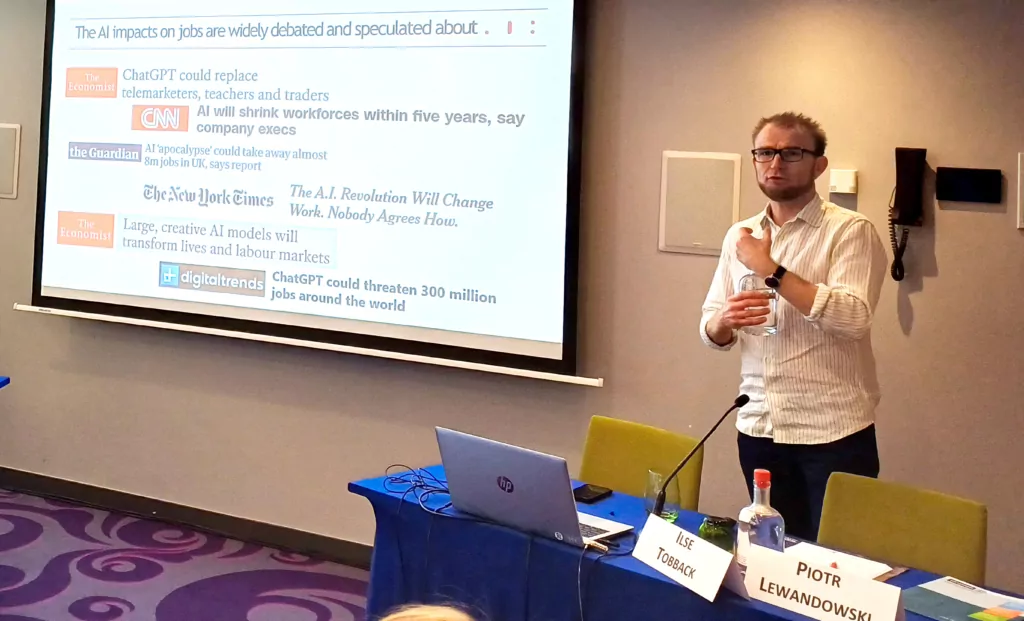The conference, “The Effects of Digitalisation, Globalisation, Climate Change, and Demographic Shifts on Labour Markets and Welfare States in the European Union”, provided an opportunity to share the project’s key findings and engage in dialogue with researchers examining the evolving dynamics of Europe’s labour market.
The conference opened with a keynote address by Francesco Vona (Università degli Studi di Milano and Fondazione Eni Enrico Mattei), who explored how to make Europe’s green transition both economically viable and politically sustainable by addressing its labour market impacts. Vona argued that governments should adopt place-based strategies to counter the growing backlash against climate policies and workers’ fears of being left behind. These policies should include reskilling and retraining programmes, particularly in engineering and technical fields. He also noted that green jobs often require higher skill levels but don’t necessarily offer higher pay. The EU’s Just Transition Mechanism, which focuses on regions, has already yielded positive outcomes.
Piotr Lewandowski kicked off Session 1 with a discussion of his paper “Workers’ Exposure to AI Across Development”. He and his co-authors looked at data from 103 countries, covering almost 90% of global employment. They adjusted for differences in tasks within occupations between less and more developed countries. The research found that AI exposure correlates positively with GDP per capita: low- and middle-income countries exhibit fewer AI-exposed tasks, especially in high-skilled occupations. AI exposure rises over time mainly due to changes in tasks within occupations, rather than shifts in occupational structures.

A detailed coverage of the Conference can be found → here

